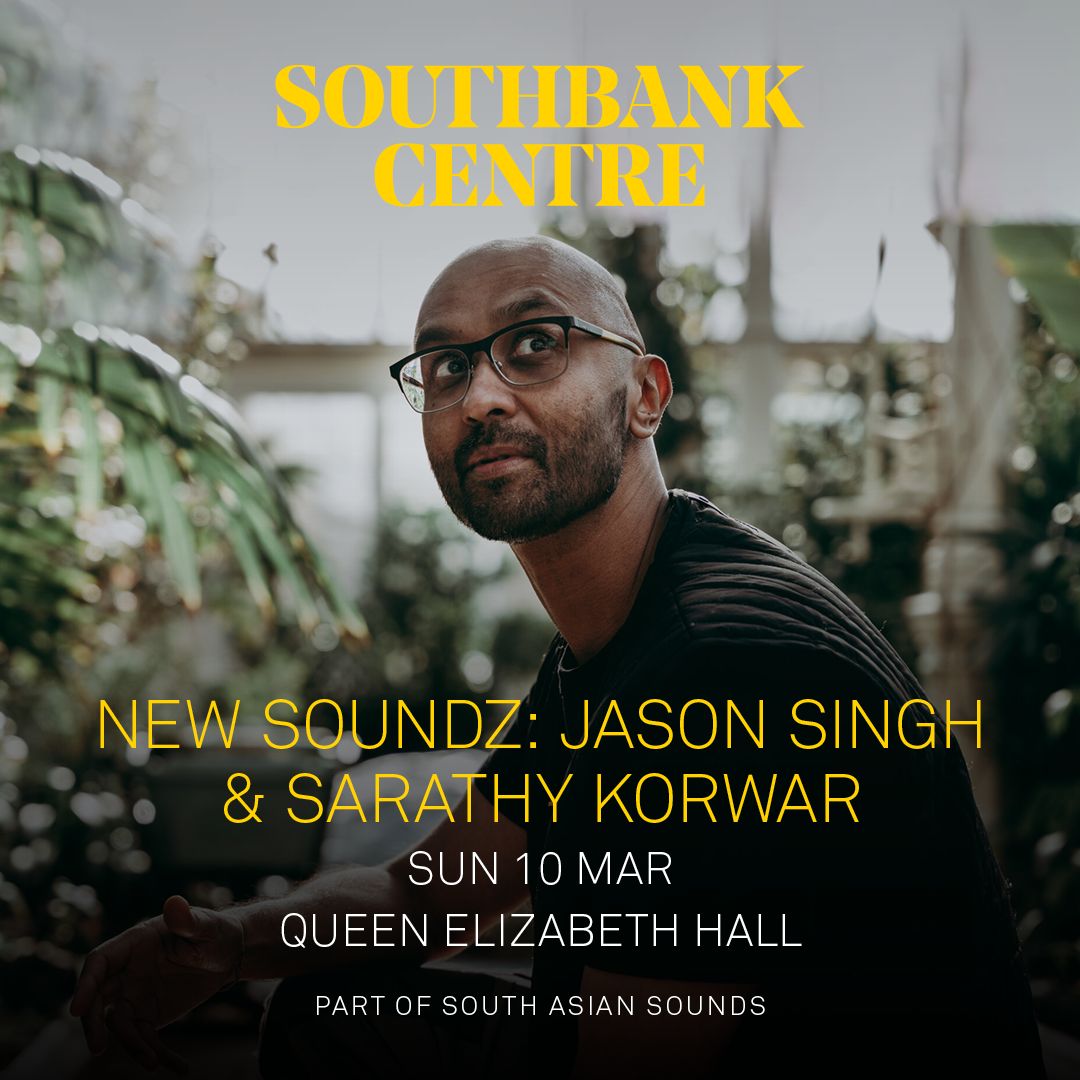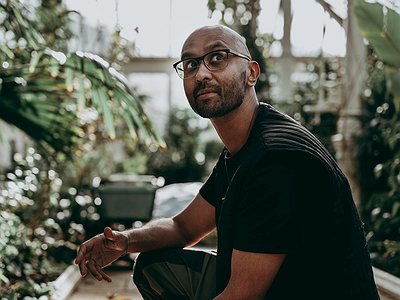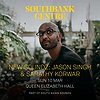Name: Jason Singh
Occupation: Sound artist, nature beatboxer, producer, dj, curator, facilitator, performer
Nationality: Indian
Current release: Jason Singh is one of the artists at the South Asian Sounds Festival as presented by Asian Arts Agency. For his concert on March 10th 2024, Jason will collaborate with drummer, composer, and improviser Sarathy Korwar. More about that performance here – and you can read our previous conversation with him about the festival here.
In this interview, we cover another piece of his, Phytosynthesis, which will also be part of the festival's program. 
[Read our Sarathy Korwar interview about Improvisation]
[Read our Sarathy Korwar interview about KALAK, and Indofuturism]
[Read our Sarathy Korwar interview about Drumming]
If you enjoyed this Jason Singh interview and would like to know more about his music and work, visit his official homepage. He is also on Instagram, Facebook, and twitter.
How important is sound for our overall well-being and in how far do you feel the "acoustic health" of a society or environment is reflective of its overall health?
That’s a really fascinating question and I think sound overall is extremely important to our well-being. The sounds that we hear from other people, the sounds we hear around us, the sounds from our environment, the sounds from within, all of these things have a huge impact on our health: mental health, physical health.
I feel a lot of what we experience as humans in terms of what we can and can’t do is based upon sound that has been given to us by people telling us what we can and what we can’t do or be or not be. And similarly, being in environments like outdoor spaces, forests, woodlands, wide open landscapes, the sea, all of these have an incredibly positive impact on the body and the mind.
So I think it’s very, very important.
Before we start talking about plant music, I wanted to very briefly start with animals. Many animals communicate through sound. Based either on experience or intuition, do you feel as though interspecies communication is possible and important? Is there a creative element to it, would you say?
Firstly, in terms of inter-species communication, more than that I feel it’s about a respect for all species.
First and foremost before we can communicate with other species or feel that other species can communicate with us, we need to really build on the idea of respecting, appreciating and acknowledging that there are other species other than ourselves and almost lowering the peg of what we feel is intelligent or not intelligent.
So whether we can communicate with other species, I don’t know. I feel like there have been moments in my life when I have been around animals and other non-human species where I feel there has been a connection of some kind.
What it is I can’t say exactly. But there is definitely an acknowledgement that you are here and I am here and we’re all here together.
There exists, as has been pointed out, a fascinating “attraction of humans to plants, and other non-human organisms.” What causes this attraction, do you think? And what caused it for you personally?
I guess with the work I have done around plants, I am not a specialist of any kind when it comes to plants, trees or mushrooms. But I have an interest in terms of acknowledging that I am surrounded by other living beings.
You know from the very simple thing of having a house plant in your house, how that can help on lots of different levels in terms of absorbing carbon dioxide and being good for your general well-being. Through to again, being in outdoor spaces like forests and woods, the power that plants and trees have on us. Without them, we couldn’t breath so we completely and utterly rely on them for our existence.
In terms of my own root, pardon the pun, my own root into this work, I have a family connection and history through my great grandparents. My great grandmother was Hakeem - that is a person who works with plant-based medicines. These plant healers have a huge knowledge of plants and although I don’t work with plant medicine explicitly and directly, I feel that the work I do in engaging with plants and exploring plants in this way, is a follow on really from the work and the lives of my great grandparents.
I just conducted a guide to plant music and plant communication with David Velez, for whom cooking, listening to and making music with plants are closely connected. How is that for yourself? Do you talk to plants and, if so, what do you draw from it? Do you experience it as a “dialogue” in some form?
I guess it is a dialogue of some kind. I do play music to the plants and the mushrooms that I have growing in my house. I feel like I am in dialogue with all living things really in some shape or form.
Again, it’s not really explicit for me, in terms of having dialogues with plants. I am first and foremost interested in listening, my work is very much based on that first.
As much as possible, the work I do is engaging with other living things as a way of trying to understand and respect and also comprehend how other things live and experience this world and this life.
What sparked your interest in listening to plants and even basing a piece around it?
I am really interested in listening no matter what the sound or what is creating it. I have always been inspired to find new ways of listening simply as a listener without making something from it. To kind of deepen my knowledge of the world.
I originally heard about musicians making music from plants from a musician called Mileece and she created an album called ‘Formations’ (Planet Mu Records) which completely blew me away. A whole system of using bio feedback from plants to generate music and so when I heard that I was absolutely blown away. That was many, many years ago.
Also, reading up on many texts like ‘The Mysticism of Sound and Music’ and ‘The World is Sound’ and various Vedic texts ‘Nada Brahma - The Principle of the World is Sound’ all these things relate to frequency and how all living things generate frequency and all material things create frequency. So yeah, I have a deep love for listening.
After spending some time listening to plant sounds/music, do you feel there are structures in place which are either similar or different from human music? Is there something to be learned, and appreciated for humans by listening to them?
I feel that humans should listen more. I don’t know about structures. But one thing I am definitely dead set on is that we need to listen more to our selves, to our bodies, our environment, the external environment.
We live in a time where everyone is saying something, even with me saying something now within this interview, but I feel that listening is the key.
David Velez told me he was really happy about a review of one of his pieces which recognised that the work represented “a methodology for becoming more attuned to plant life, of growing closer to our environment and its/our communal well-being.” Do you personally have similar goals for your own music? Do you feel like Phytosynthesis is the beginning of a new strain in your own music which may lead to more, similar compositions in the future?
That’s an interesting question. Do I have similar goals of your own? I guess not really. My thing is that I would just hope I inspire people to listen to the world through technology and listen to the world through their own body and being.
The things I release are more like an archive of the experiences I am having as a creative with learning new things. I make things for people to experience and for them to make their own minds up of what those things are. Very rarely will my work be an absolute prescription of ‘This is exactly what I am doing’.
My work is always open for discussion and dialogue and criticism and critique as long as it helps create an interesting dialogue about bigger issues.
Without even using a word like communication, do you think that a deeper relationship between plants and humans is imaginable? If I would like to engage in it, what could be the first steps for me to take in that direction?
Just be with it more than anything else. Take yourself into a place where you can, without using words, be with yourself, be with plants, be with trees, be with the soil and engage in a silent way.
Hopefully through that silence and through that listening, one is able to build a better relationship with themselves and the world around them.





